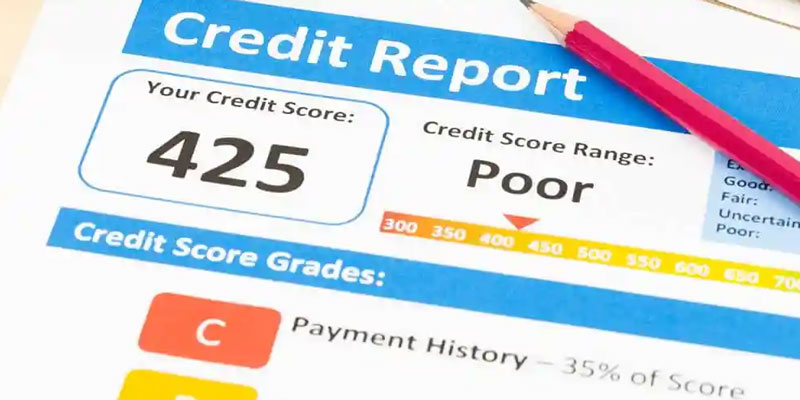The interest deduction's particulars heavily influence how you handle your student loan. The student loan interest deduction allows you to remove a precise part of interest you pay on a qualified student loan from your taxable income. This article will entail calculating and claiming student loan interest deductions.
What is the mechanism of the student loan interest deduction?
One deduction that allows consent students to deduct up to $2500 in that particular year's loan interest is the student loan interest deduction.
The student loan interest deduction is one deduction that permits consent students to deduct $2500 of loan interest paid in a particular year. For eligibility, they should meet certain conditions of the salary and the principal is legally bound by the student loan payments.
The deduction applies to federal and privately held loans, provided the proceeds were spent for qualified education expenses. This is not a credit but a deduction; subtract the deductible interest from your taxable income. This deduction can reduce taxable income and deliver a significant tax advantage for borrowers repaying student loans.

Eligibility for the student loan interest deduction?
The student loan interest deduction also applies to taxpayers legitimately obliged to pay interest on a experienced student loan. To qualify for the deduction, an individual should have revised adjusted gross income below certain limits and not be dependent on another person as per their tax return.
Qualified individuals can use a deduction to reduce their taxable income by as much as $2,500, which puts them in a lighter mode of payment. In turn, it is especially advantageous for people with a large outstanding loan quantity and low-interest rate because it offers them with better management of their student loan debt.
What does the Student Loan Interest Deduction mean?
It is one of many tax incentives endorsed to students and their families to help improve the mounting costs of higher education, especially if you would like to find out how to work out and affirm your student loan interest inference.
The Effect of Student Loans on Federal Taxes
There is a significant effect on federal taxes for persons who are eligible for a deduction, comprising student loans. People who have paid interest on a student loan in that reporting year can claim a deduction of up to $2500 for taxable incomes.
This tax relief is for those whose student loans are still pending payments. However, everyone cannot claim the student loan interest deduction.

How is interest deductible for students?
You can also claim a student interest loan if you have been paying back your student loans. This computation allows you to subtract up to $ 2500 from the interest you paid on the experienced student loans for that tax period. This deduction may be taken only by taxpayers whose improved adjusted gross income is less than $85,000 for single or $170,000 for married filing returns.
Loans from relatives and loans through a experienced employer plan are excluded from this deduction. To benefit from the student loan interest tax deduction, you need to itemize your deductions when preparing your taxes.
Calculating Student Loan Interest Deduction
In estimating the amount of student loan interest deduction, it is vital to recognize how the interest charge works and know how to calculate and claim your student loan interest deduction.
First, determine the interest rate applied to student loan during the year. However, the applicable interest is decided according to the remaining amount at any given time. To determine student loan interest rates, contact loan statements or gather more information through the loan servicer. This amount will let you claim tax.
This deduction is designated beyond the line, and you may not need to list down deductions to claim this deduction. This is a significant allowance that allows the majority of borrowers to subtract from their taxable income sums, reaching up to amounts as much as $2,500
Additional tax breaks to consider
The government provides some educational tax credits if you are already taking a course and are paying for college-related costs. Here are some ways to potentially lower your tax bill:
American Opportunity Tax Credit (AOTC)
If you spent on qualified school-related expenses for an eligible student in a postsecondary school, then you could claim AOTC. However, the American Opportunity Tax Credit is persisted $ 2,500 each student and can only be processed in the first four years of your education.

Lifetime Learning Credit (LLC)
Lifetime Learning Credit (LLC) is a non-refundable credit of up to $2,000 for every tax return that covers succeeding educational expenses. Eligible undergraduate, graduate, and qualified degree courses offer an opportunity to attain new job skills.
College savings plans
You can make extra savings by investing in a 529 college savings account. Essentially, this account is an investment account, which allows that money to grow tax-free. You won't be penalized if you use the funds for qualified educational costs. Moreover, if you or your child opt not to go to college, it is possible to change beneficiaries.
Credit card interest deduction
You can deduct the interest you paid if you charge qualified educational expenses on your credit card. But every expense on the card has to be for school; otherwise, you can't remove anything. Most significantly, credit cards typically have higher interest rates than student loans. If you are struggling with charges, you may need a personal loan for your education.
Conclusion
Measures that introduce the policy of making education less expensive and accessible through grants and scholarships can reduce the burden of taking out significant student loans to cater to their study requirements.
Moreover, the loan forgiveness plan should be carefully considered to ensure it is fair and viable. A possible competing solution is to offer tax benefits to individuals by deducting the student loan interest paid from their taxes; this should help reduce the loan repayment burden. Read this article carefully to learn how to calculate and claim your student loan interest deduction.




